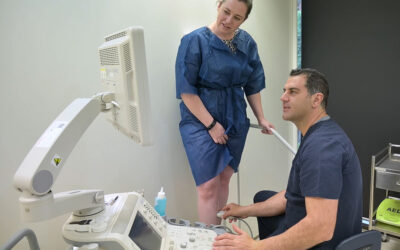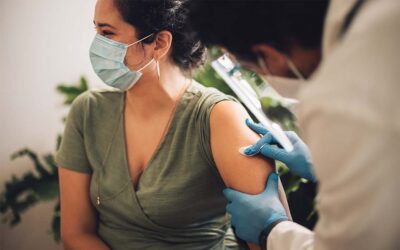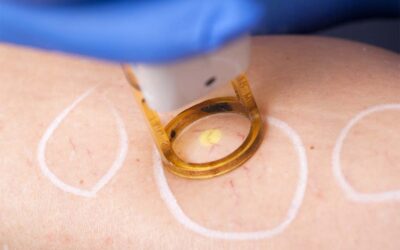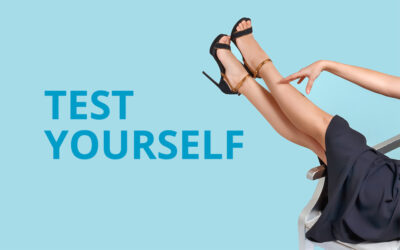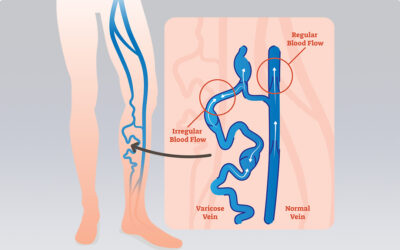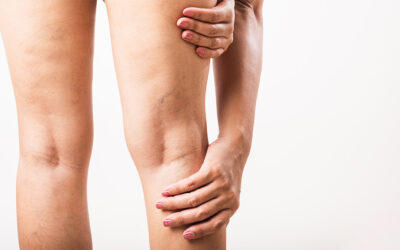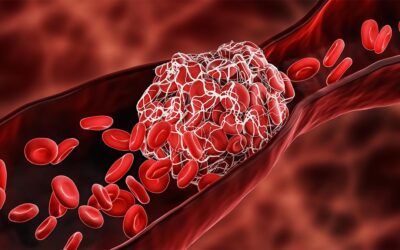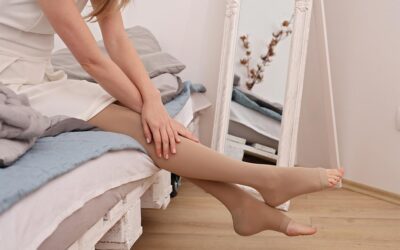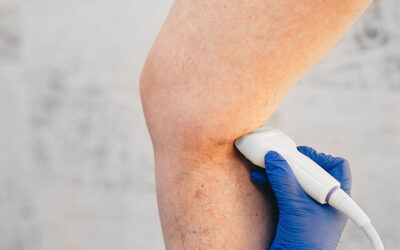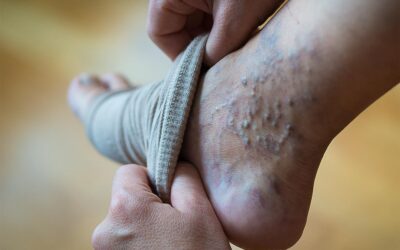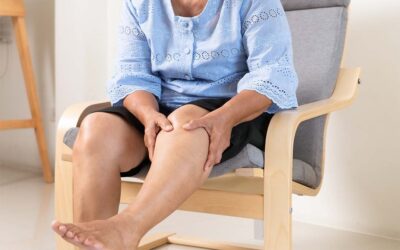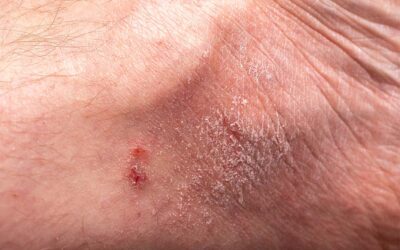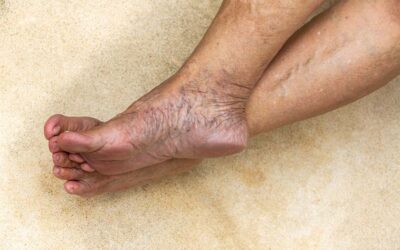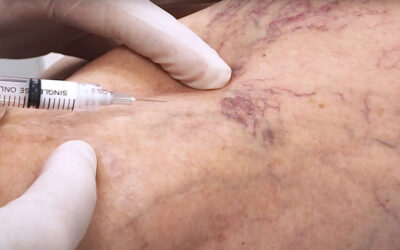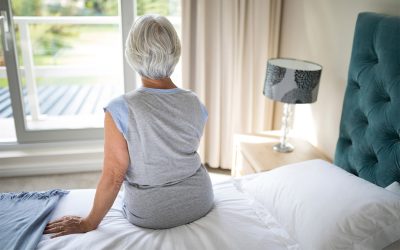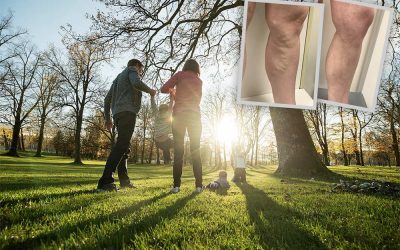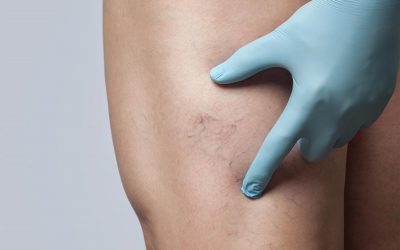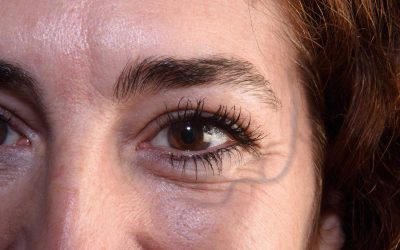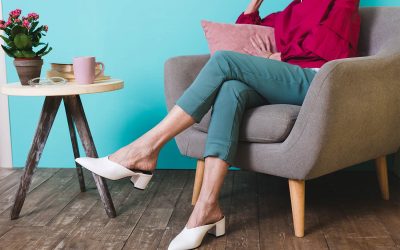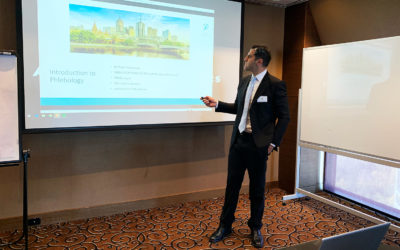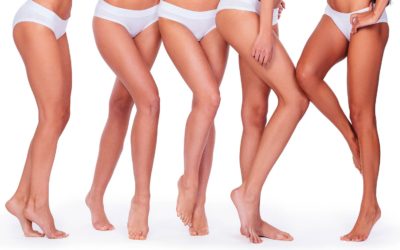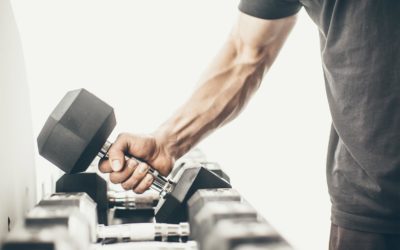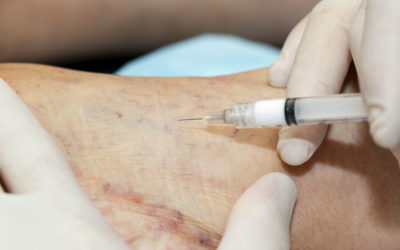Blog & Articles
Ultrasound: A crucial diagnostic test for varicose and spider veins
An ultrasound scan allows your phlebologist to not only identify the veins that may be causing you direct pain and symptoms – it also allows them to trace the origin of the problem veins.
COVID-19 Vaccination and Varicose Veins
Let us illuminate some of the jargon around the COVID-19 vaccines and varicose vein treatment.
IPL laser for spider veins and varicose veins
Are IPL laser treatments a good choice for spider and varicose veins?
Are your legs travel-ready?
Dubbed the ‘economy-class syndrome,’ staying motionless on long-haul flights or roadtrips is a key factor in the occurrence of deep vein thrombosis (DVT).
Period pain or pelvic congestion syndrome?
Pelvic congestion syndrome (PCS) is a condition affecting 2-7% of women who have been pregnant but also occurs in women who have not been pregnant.
Take the Quiz: How much do you know about varicose veins?
If you or someone you love have suffered from varicose veins, you might be surprised at just how much you know. Take the test!
International Vascular Awareness Month
People think that vascular disease only refers to conditions that affect arteries, the truth is that vascular disease can also affect veins too.
Flying after varicose vein treatment
Patient question: “Dr Peter, I’m about to book flights but realised my varicose vein appointment is a few days before. How soon after I get my veins done can I fly?
Poor circulation in the legs: the cause of varicose veins?
Poor circulation is a symptom, not a disease. When we observe the signs of circulation problems such as muscle cramps, throbbing or stinging pain in the limbs, pins, and needles, or a sensation of numbness, we should pay attention.
Varicose Veins During Pregnancy
Varicose veins that appear during pregnancy can cause discomfort, throbbing pain, cramps, swelling, and can be a source of extra concern to expectant mums.
3 Causes of Deep Vein Thrombosis (DVT)
Deep vein thrombosis (DVT) has been in the news for all the wrong reasons recently, leaving many confused about what it is and its causes. Let’s look at three causes of deep vein thrombosis in the general population and how to minimise the risks.
Compression stockings for varicose veins: Can they help?
For people with varicose veins in the legs, the painful symptoms are a daily challenge. Sometimes getting leg vein treatment immediately is not an option, perhaps because of location, pregnancy, or availability. In the meantime, could compression stockings help relieve the symptoms?
How to get the best treatment for varicose veins
An initial assessment of suspected varicose or spider veins involves a careful comprehensive examination. It should include the patient’s medical history, physical examination, and a duplex ultrasound to identify the source of any vein abnormalities.
Relieving varicose vein pain
Varicose veins and spider veins can cause a lot of pain and discomfort. The only thing that will resolve the problem is to have them appropriately treated by a phlebologist, but in the meantime, we’ve put together a list of some ways you can relieve the pain in your legs.
Are varicose veins dangerous?
Varicose veins are often dismissed as a cosmetic problem. These ropey, blue blood vessels that protrude the surface of the skin cause some people to shy away from baring their legs in shorts or dresses. But are they dangerous?
Do herbal supplements work on varicose veins?
Some herbal supplements promise to reduce varicose vein symptoms, “support blood vessel health”, and “rapidly reduce venous congestion”, but are they effective?
Can varicose veins be cured by exercise?
Exercise is great for so many reasons. But can it also be credited with curing varicose veins? Let’s take a look at what varicose veins are and what causes them.
Why are my varicose veins itchy?
For some people, having itchy varicose veins is the first time they noticed their prominent veins could be more than just a cosmetic problem. Itchy varicose veins are one of several symptoms of venous insufficiency that may signal you have venous eczema.
Are ankle and foot veins linked to deeper vein problems?
The bluish veins that show up close to the surface of the skin on the inner or outer ankles and feet may have been there a while, and perhaps you feel a little unsure if they’re a problem. What are they? What causes them? Are they good, bad, or indifferent?
Why does hyperpigmentation occur after sclerotherapy?
Hyperpigmentation is a darkening of the skin. It is a symptom of conditions in several different regions of the body. There are a couple of reasons why it is relevant to varicose veins, healing from sclerotherapy and a symptom of serious venous disease. It might look like a light brown discolouration or a dark shadow near the area of the vein.
Should I get my problem veins assessed/treated during the COVID-19 pandemic?
The novel coronavirus (COVID-19) pandemic has resulted in elective surgeries in hospitals being postponed to divert those resources to managing the pandemic. However, the treatment of venous disease is important and must not be overlooked.
Experiencing varicose veins and getting treatment
Varicose veins can affect people in several ways and one person’s journey may be different to another’s. Read about Janelle’s journey from treatment with EVLA to recovery.
Will spider veins go away?
Before we deal with this key question in-depth, it is useful to explain what spider veins are, and how they appear. The official medical term is telangiectasias and other descriptive terms often used are ‘broken capillaries’ or ‘thread veins’.
All eyes are on a non-surgical treatment that targets periorbital veins
Prominent “reticular” veins (periorbital veins) around the eyes are a common concern, patients globally are unaware they can be effectively and safely treated non-surgically.
Could your job be causing you pain
Some work can be a pain in the neck, but a number of diverse professions in regional Victoria can also be a pain in the leg, according to a leading Victorian vein doctor.
Does crossing your legs give you varicose veins?
There is a myth surrounding the uncomfortable protruding veins on the legs that seem to appear almost from nowhere as we age. This myth persistently catches most people out, because they have assumed all their lives that their varicose veins were caused by something they did during their lifetime.
Dr Paraskevas Presents at the ACCS and the ACP Annual Sclerotherapy Workshop 2019
Dr Paraskevas of Vein Health Medical Clinic (part of Paras Clinic) was once again honoured to represent the Australasian College of Cosmetic Surgery (ACCS) and the Australasian College of Phlebology (ACP) at the Annual Sclerotherapy Workshop for ACCS registrars in Melbourne.
The Varicose Veins You Can’t See
Varicose veins are an unpleasant and often uncomfortable fact of life. Most of us will have noticed some of these popping up, but what about the varicose veins you can’t see?
Hey CrossFitters, are veins that ‘pop out’ normal or a warning sign?
When it comes to protruding veins in CrossFitters and body builders, it can be hard to tell immediately whether they are the result of vascularity or varicose veins.
Sclerotherapy: What is Sclerosant and Why Does it Work On Varicose Veins?
Sclerotherapy is one of the most popular treatments for varicose and spider veins. If you look through the before and after shots of some of our patients, you’ll see ultrasound guided sclerotherapy and direct vision sclerotherapy features repeatedly.

